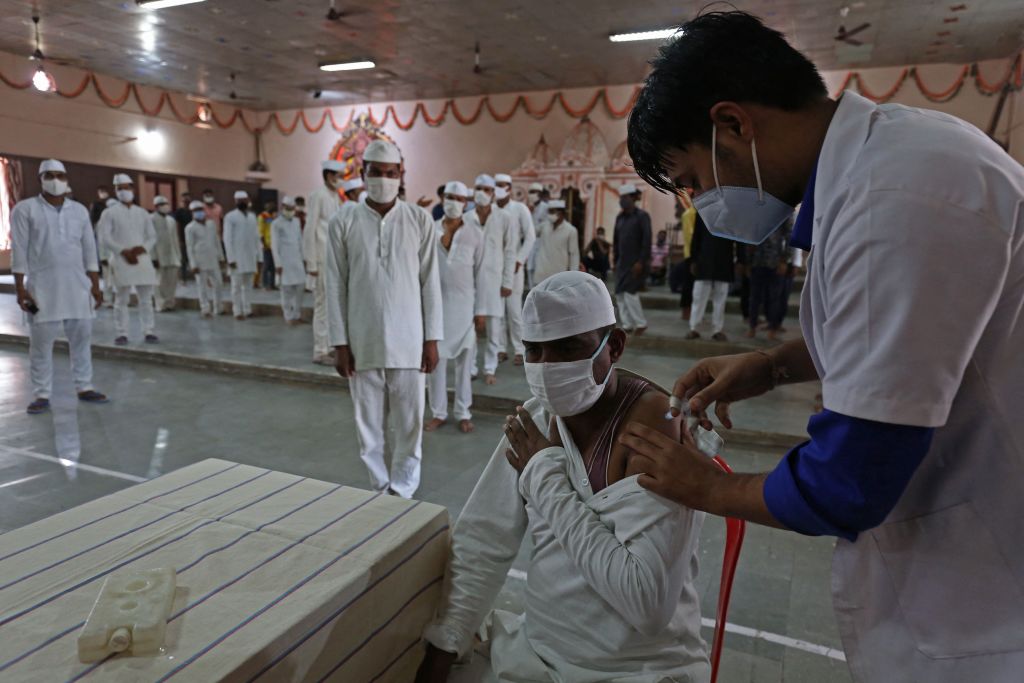- Thursday, April 25, 2024

By: Pramod Kumar
India may raise spending on COVID-19 shots by over a quarter this fiscal year to up to Rs 450 billion ($6.18 billion) from its budgeted amount, two government sources told Reuters after the prime minister offered free doses to all adults.
Prime minister Narendra Modi said in an address to the nation on Monday (7) that the federal government would bear the cost of vaccinating all adults from June 21. His previous policy of getting individual states to pay for immunisations for those aged under 45 years was widely criticised.
The sources, who did not want to be named as they were not authorised to speak with the media, said the government would spend up to Rs 450bn on Covid-19 vaccines this fiscal year, which started on April 1. The previously budgeted amount was Rs 350bn.
One of the sources said part of the increase could be due to higher-than-previous costs for domestically manufactured shots. He did not elaborate. India’s finance ministry did not immediately respond to an email seeking comment.
The country is currently using the AstraZeneca vaccine produced by the Serum Institute of India, and another developed at home by Bharat Biotech. Russia’s Sputnik V will be commercially launched in the country in the middle of the month.
Modi’s policy shift underscored a drive to rein in a Covid-19 pandemic that has killed hundreds of thousands in India and led to the world’s second-highest tally of infections.
It followed weeks of criticism of a bungled vaccine rollout that has covered fewer than five per cent of India’s estimated adult population of 950 million.
Free vaccine, foodgrains to cost $19.87bn
The government will spend up to Rs 1450 billion ($19.87bn) to provide free vaccines and foodgrains to people devastated by the deadly second wave of Covid infections.
The cost of free vaccine will be Rs 450bn and extending 5 kg of wheat or rice and 1 kg of pulses every month to nearly 800 million beneficiaries till November will cost around Rs 1300bn.
The free food grain scheme that was to end in June has been extended till November.
According to sources, the government may have got enough buffer from the larger-than-expected Rs 991.22bn ($13.58bn) dividend from the Reserve Bank of India (RBI) and the windfall from record taxes on petrol and diesel.
The two together may just be enough to fund the free vaccines and the food grain cost.
For the current fiscal, the food subsidy is estimated at over Rs 2420bn ($33.16bn).
![]()